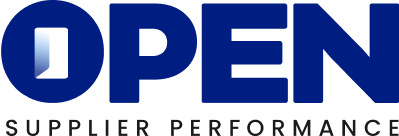A Strategy for Supplier Performance and Communication for Manufacturers

In the fast-paced world of industrial manufacturing, where efficiency and reliability are paramount, a well-structured supplier performance strategy is the key to success. Suppliers play a pivotal role in the supply chain, providing essential materials and services. To harness their full potential and ensure seamless operations, businesses must adopt best practices in supplier communication and performance management.
In this blog post, we will delve into the core principles that underpin an effective supplier performance strategy. From setting clear expectations and implementing centralized communication systems to real-time tracking and proactive issue resolution, these practices will empower manufacturers to not only build stronger supplier relationships but also drive operational excellence and sustained growth.
Clear Expectations and Accountability
- Clearly define roles and responsibilities for both your business and your suppliers right from the start.
- Set explicit expectations for quality standards, delivery schedules, and other key performance indicators (KPIs).
- Hold suppliers accountable for meeting these expectations and provide constructive feedback when needed.
Centralized Communication Hub
- Implement a centralized communication hub, such as a supplier portal, for efficient and organized interactions.
- Use the portal for sharing important documents, contracts, and specifications.
- Ensure it facilitates seamless communication between your team and your suppliers, making it easy to ask questions and provide updates.
Comprehensive Performance Dashboard
- Develop a performance dashboard that offers real-time insights into supplier performance metrics.
- Monitor key indicators like on-time delivery, product quality, and adherence to agreed-upon terms.
- The dashboard should provide at-a-glance visibility into how each supplier is performing, allowing you to quickly spot trends or issues.
Automated Notifications
- Set up automated notifications to keep all parties informed about critical events and deadlines.
- These notifications can include order confirmations, shipment updates, quality inspection results, and payment schedules.
- Automating these processes reduces the risk of missed deadlines or miscommunications.
Real-time Performance Tracking
- Continuously monitor supplier performance in real-time, especially regarding delivery times and quality metrics.
- Use data analytics to track trends and identify potential performance issues early.
- Implement corrective actions swiftly to prevent minor issues from becoming major problems.
Regular Performance Reviews
- Schedule periodic performance reviews with suppliers to discuss their performance against KPIs and areas for improvement.
- Collaborate on action plans to address any identified shortcomings and continuously optimize the relationship.
- Maintain an open line of communication during these reviews to ensure mutual understanding and alignment.
In Summary
By implementing these elements into your supplier performance strategy, manufacturers can establish a robust supplier performance program that fosters clear communication, accountability, and real-time visibility, ultimately enhancing your supplier relationships and driving better overall business outcomes.
Our platform, Open Supplier Performance can be your one stop shop tool that can help streamline supplier performance and communication. Open Supplier Performance provides real-time communication and performance with suppliers, visibility into supplier performance, and automation.
With Open Supplier Performance, businesses can collaborate with suppliers in real-time, using features such as chat, document sharing, real time notifications and updates. They can also track supplier performance against key metrics, including delivery times and quality metrics, and receive automated notifications for important events and deadlines.
Effective supplier Performance and communication are essential for any business to succeed. By establishing clear lines of communication, setting expectations, and using tools such as Open Supplier Performance, businesses can improve their visibility into supplier performance, identify and address issues early, and ultimately, drive greater business success.


